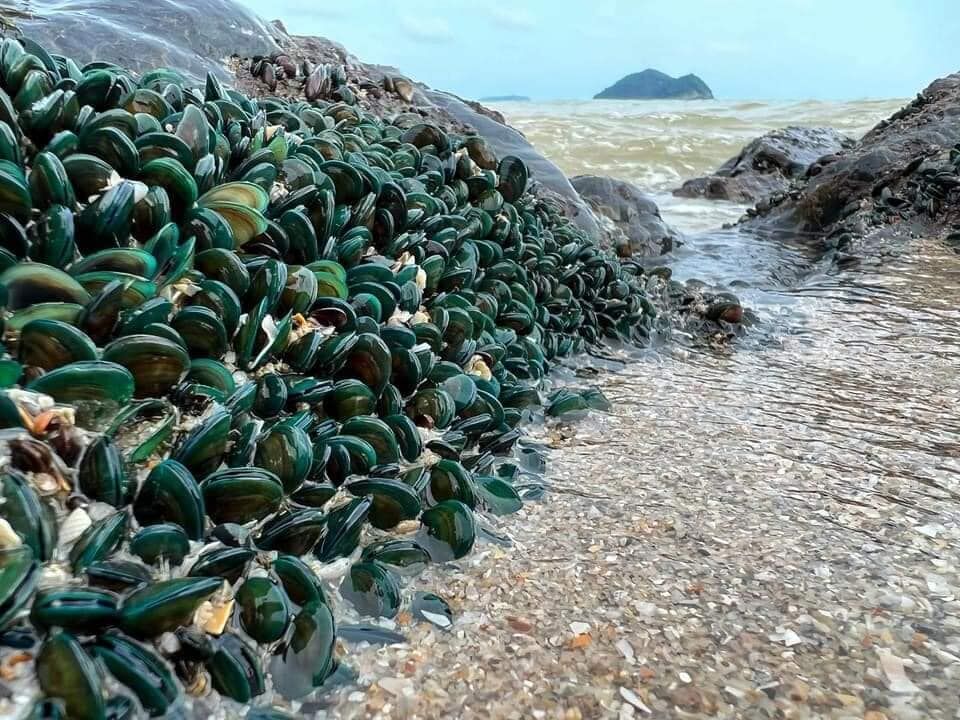Shell shock: Songkla beach residents bemoan mussel decline

Residents around the Samila Beach area in Songkhla reported a decline in the green mussel population stating that it’s had a negative effect on the community who rely on them as a source of food. Small-sized mussels remain unsuitable for consumption, and it is estimated that the population requires further growth before harvesting is possible.
Today, it was reported that the number of green mussels found in the Samila Beach area in southern Thailand had decreased when compared to the same period last year. Moreover, the mussels’ small size makes them unsuitable for cooking. Experts predict that some time is needed for the population to grow before harvesting can resume, KhaoSod reported.
Fishermen in the area, who have been monitoring the green mussel population, confirmed the decline in the marine species found in the area. With their small size, residents have not come to collect these mussels from the rocks. Some speculate that the irregular weather conditions in the region might be responsible for this phenomenon. They believe that the mussels need more time to recover and grow before harvesting can recommence.
In the past, villagers could gather several kilograms of mussels within 1-2 hours, which they either cooked for themselves or shared with their neighbours. Despite the mussels not yet reaching their full size, they were still edible and a cost-effective source of nourishment.
The Department of Marine and Coastal Resources disclosed that the decrease in green mussels, scientifically known as Perna viridis (Linnaeus, 1758), is due to the breeding season.
With an average length of 2.2 centimetres long and 1.3cm wide, the small mussels, aged approximately two months, usually cling to rocks in areas submerged in seawater. The area affected by this issue covers around 2,217 square meters. This is a natural seasonal dispersal occurring in the lower Gulf of Thailand’s coastal areas.
Latest Thailand News
Follow The Thaiger on Google News:


























